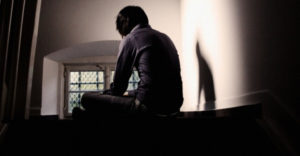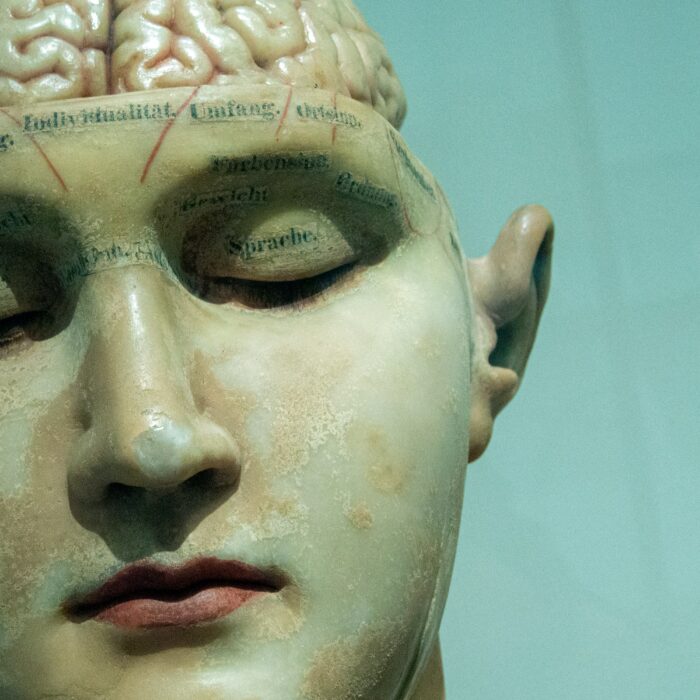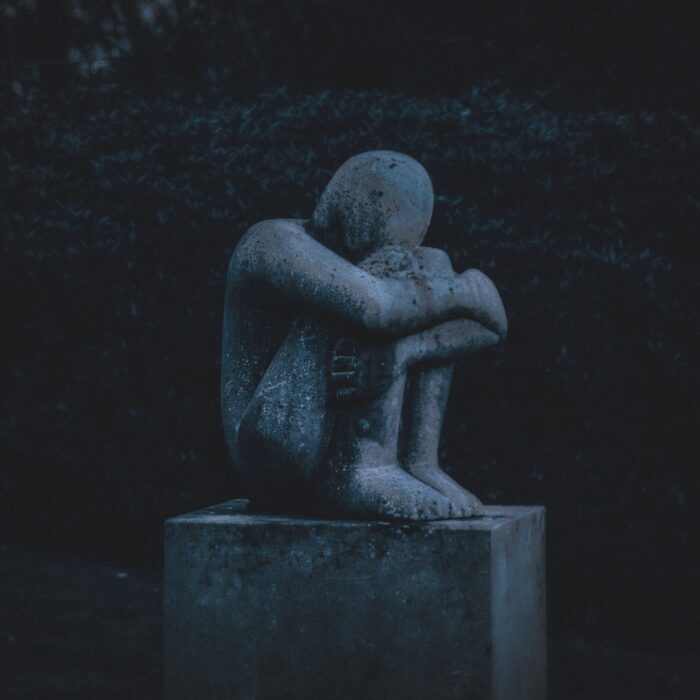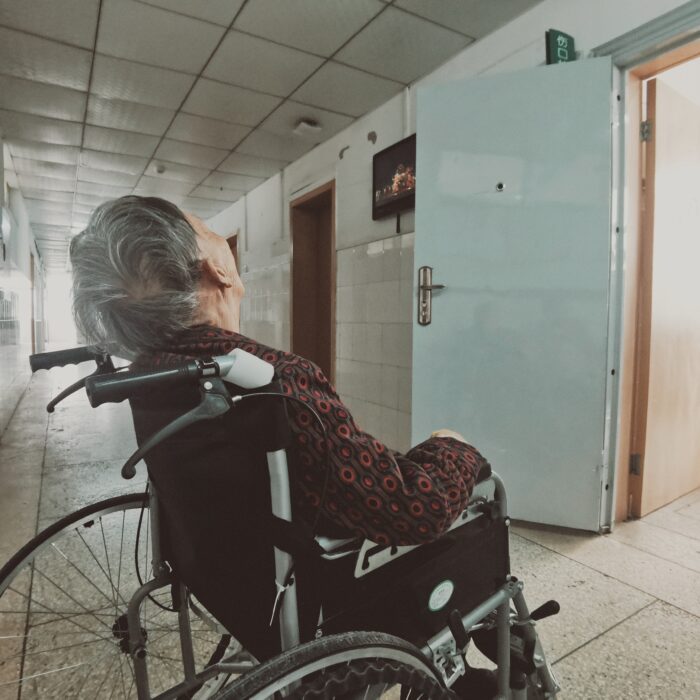You have no items in your cart. Want to get some nice things?
Go shopping For my son’s fifth birthday party we blew up balloons in the kitchen and every time we found a green one I had to go outside and let it go. The first time I ran out, my son ran after me and in the backyard he frowned and asked why I did that. I couldn’t begin to explain so I told him it was fun and he should try it. His balloon was red. He let it go and laughed. It was a bright day with a wind that made the balloons dance. The second time I found a green one he said “Mamma” and his voice was small. He stayed by the back door, holding his balloon close, while mine went high and I had to shield my eyes from the sun to watch it. The third time he said “Mamma no.”
For my son’s fifth birthday party we blew up balloons in the kitchen and every time we found a green one I had to go outside and let it go. The first time I ran out, my son ran after me and in the backyard he frowned and asked why I did that. I couldn’t begin to explain so I told him it was fun and he should try it. His balloon was red. He let it go and laughed. It was a bright day with a wind that made the balloons dance. The second time I found a green one he said “Mamma” and his voice was small. He stayed by the back door, holding his balloon close, while mine went high and I had to shield my eyes from the sun to watch it. The third time he said “Mamma no.”
When the party was over, I texted to tell you that my son stopped me from letting any more green balloons go. He insisted green was his favorite color, just like it was yours.
I got a reply: my favorite color is not green and who are you anyway?
*
I am the girl you approached in the school canteen years ago. I tried to ignore you, but you were never one to be ignored. You stood across from me, for how long, one minute, a few seconds? It was impossible to tell and a relief when you finally said, “Hi, I’m Natalie.”
I looked up to see a thin girl in jeans and a sweater. Dark hair fell over your face and your shoulders folded inward, though there was nothing shy about you. You were just light enough to blow away. “You’re new, aren’t you?”
I nodded. You had to ask my name before I told it. “Lisa, that’s pretty. Can I sit?”
You didn’t wait for an answer.
“So what’s up, are you depressed?”
I’d spent three days in a psychiatric hospital and had hardly spoken since, so I would have said yes, if I’d felt like talking. Your eyebrows rose up in the way I would get used to. The gesture could mean “this is a fucking joke”, as it did in group therapy, or “way to go”, as it did when I phoned my mother and lied about extra work so we could hang out, or “seriously, is that it?” as it did when I offered nothing.
It’s hard to imagine who I’d be if you’d given up, but you didn’t. You rested your chin on hands that lay flat on the table. Your upward gaze made you look impish. You said, “If you could be any animal, what would it be?” You didn’t wait for a response before you said, “I’d be a sloth, just hanging out in the trees all day with no one bothering me. There’s something in the leaves that gets them stoned. Did you know that?”
You said, “They’re so chilled they only shit once a week … ha, you smiled.”
After a pause, you asked, “What about you?”
I thought of a bird straight away, white with a huge wingspan, I didn’t know what it was, probably something I made up.
“I bet you’d like to be a horse?” you said.
You were on the far side of the table, but you were reaching inside me too. I could feel the pull of words: why a horse? It was the first time I’d been curious in weeks.
“Yeah, a horse,” you said, pleased with yourself.
*
I was fifteen and had just moved with my family to Gardner, Massachusetts. Before the move, we’d never heard of PACE school. I was supposed to go to the local high school. My parents kept my name on the list for the first six months of that year. They phoned to tell the principal we were delayed and would not be moving until April. I imagined them sneaking around town pretending they weren’t there, so they could pretend I wasn’t walking around a school where group therapy was part of the curriculum.
I don’t think they were ashamed as much as shocked and off-balance. For a while a stranger had lived in their house. I’d broken glasses and plates and screamed about the unfairness of leaving everything I knew. Then the rage left as suddenly as it came and I didn’t want to get out of bed. Mom would sit beside me and say, “Lisa please, you have to eat,” and I’d stare at nothing and think if I opened my mouth I would be swallowed by myself, like when you fold the sock inward. When I was left alone, my mouth would open and close but no matter how many times I did it I was still on the bed, so one day I opened my mouth and swallowed all the aspirin I could find.
“It’s the move,” the doctors told my parents. “It’s caused a lot of anxiety.”
My mother wouldn’t stop apologizing after that and I hated her for making my sorrow her own. It was always her fault, her grievance, her regret. You were the only one I told, and you said, “But isn’t that what moms do.”
I said, “What?”
You said, “Get it wrong.”
Yours didn’t. She was sweet but you didn’t want sweet. You wanted someone to knock the thoughts out of your head.
“I’ve made a friend,” I told my mother after my first day at PACE.
She was skeptical until she met you. She thought we would bring each other down, like a person drowning can drag the rescuer to the bottom, and I said what if we are rescuing each other. No, I didn’t, but I wish I did. I didn’t know what to say and then you came running out of the school. It was a bright day. I remember how pale your skin looked, luminous, an angel running towards us. You stopped, breathless. The keys in my Mom’s hand jingled – a sign of nervousness.
“Hello Lisa’s Mom.”
Mom glanced at me and then at you standing with your hand out and I saw the ice thaw.
“You must be Natalie,” she said. “I’ve heard a lot about you.”
You nodded and said which one and I laughed but my mother frowned. You apologized and said it was a bad joke. She asked me in the car what you meant and I said I didn’t know because I didn’t want to explain.
*
Another day you said, “My favorite color’s green, not the light green that people turn when they’re about to get sick, like my Mom when she had to visit me in hospital. I’m talking dark green, like those pictures of the Amazon that are taken from the sky.”
“Yellow,” I said, though that surprised me.
You said, “Lithium is yellow. Trintellix is yellow too.”
“Or they’re pink.”
You said, “Yeah I never liked pink. Clonidine is light green.”
I asked what that was for.
“Anxiety, panic attacks. It keeps my head quiet.”
I said, “My head’s too quiet. It’s like the radio without stations.”
“With the fuzzy shit?”
“Not even the fuzzy shit.”
You said, “I want your head.”
*
“Come on, let’s explore,” you used to say.
“Explore what?”
“Exactly,” you’d say, and you’d drag me down the school corridors to peek into rooms and I couldn’t stop laughing even as I said, “No, don’t.”
*
Later, when I left Gardner I texted you about my parent’s messy divorce. In college, I texted and here am I budding among the ruins, after reading the poem, because that was me after you.
I texted you when I started working with teenagers in the recreational center and about my guilt for looking for you in every face, which eventually turned to disappointment, and then to seeing the kids for who they were.
After I met Nick, I texted to say you’d like him. I told you he was an architect and drew cartoons. The first thing I noticed was his smile. It was easy to be with him, like being with you.
I told you about my son.
Nick saw that text. “I didn’t know you were scared,” he said.
I sat on the bed beside him. Our son was asleep in his cot. Outside someone was mowing the lawn, a picture of domesticity. I was scared; every time I looked at my son’s face I felt tiny. I didn’t know if I was able for it. It was so fucking huge.
He held me close to him, and said, “I’m the one here, Lisa. You should talk to me, not her.”
*
On our son’s birthday, Nick found me crying in the bedroom. The television was on downstairs releasing a blare of cartoons. He sat by me and asked what was wrong.
When I showed him the text, he kissed my forehead and said, “You need to erase her number.”
I leaned deeper into him. I would have liked to disappear.
“Jake told me about the green balloons,” he said and I heard the worry in his voice.
I didn’t want to ask what Jake had said because I didn’t want to know.
I said, “Natalie loved plants. Her green fingers were one thing she was sure of. She watered them up to the last minute. She had us fooled.”
*
I remember some mornings you laid your pills out on your kitchen table and your long fingers were so graceful. I loved watching you.
“How do I know you’ll never try to hurt yourself again?” you asked.
I said, “Because I won’t, I promise.”
You said me too, and every night before going to bed, we’d text that single word.
*
Our last year of school, we fought on the phone. You told me you wanted me to leave you alone. You said it was hard work trying to keep me happy. I said that I’d never asked anything from you and you said everyone wants something. Years later, my son would wake with an ear-ache. He’d bawl until the painkiller kicked in and then he’d lie sleeping with his face pressed against mine and his breathing would remind me of you because of the way it entered some part of me and stayed for a long time. After the pause, you said, “I’m sorry but I can’t keep doing this. There’s so much in my head and it hurts. I just want it to be quiet.”
You hung up and my hands shook when I texted, “Promise.”
You didn’t text back. I phoned your mother and told her she needed to go home now. She needed to stop you. I remember your mother in a long skirt and a white blouse. I remember her hair falling over her face and seeing her on television crying and screaming at the police, but I don’t remember if she was in the house that day, if she rushed from her office or had to leave her trolley half-filled with food in the middle of an aisle. These small missing details get to me sometimes. It’s like having a picture with parts uncolored. When I ask her she says it doesn’t matter, but I know she burst into your room and screamed before she ran to you.
*
The second time we met in a canteen. It was not at school but in the hospital. I sat opposite to you and you asked how I managed to keep my promise and be the visitor and not the patient. I had to wait until I got outside before I cried. I told you that I tried to make a reservation but they were booked up, and you smiled.
I wasn’t as good at making people laugh as you were. You had bruises on your neck that I wanted to touch. I wanted to ask you questions that would draw you out, if you could go anywhere where would it be or if you could meet anyone who would it be, but I was frightened of what you might say.
You were angry at me and didn’t know whether or not to forgive me for phoning your mother. “Why did you do it?”
I said because you were my best friend and I loved you. I didn’t want to lose you.
You said, “I can’t explain what it was like, the panic in those minutes before Mom came when I felt myself drifting away.”
You were crying, “I’m afraid to do it again and I hate you for doing that to me.”
*
Your phone stayed off when you came home and when my mother drove me to school, she parked the car instead of leaving me at drop-off. She’d squeeze my hand while I watched the kids going into the building, waiting for a glimpse of your dark hair. I know my mother cried those mornings while she watched me go into school alone.
I called your mother and asked what was going on.
She said, “Don’t worry, she’s doing okay. She took a walk today. I think she went shopping, and she’s watering the plants.”
I think of you planning it all out slowly, just like you used to lay out your pills. The hat would have been your first buy.
*
I have an image of you in your big coat in that end-of-summer heat. It should have made us laugh. Afterward, we should have gone into your house and taken it off, so you would become again the slight girl I knew.
In the canteen, you said you hated me and then you said you were sorry. You sang, I’m just a kid with depression, anxiety, bipolar too, how about you? And I laughed. But you were warning me. You said you were too afraid to do that again. You didn’t say you didn’t want to do it again, and now I listen to every word the kids in the center say.
You seemed happy that morning. Your mother said you had breakfast and talked and smiled and helped her do the dishes, but at that stage you’d already phoned 911.
I was in school when the police started for your house. I was either walking to class or staring out the window when your mother realized you weren’t in your room.
She found you in the garage wearing the winter coat and your hair tucked under a baseball cap. She asked what you were doing and you told her it would be okay. I was probably watching the clock in the classroom, seeing the seconds slip by, when she ran into the kitchen to phone your doctor on the same line you’d used only half an hour earlier when you pleaded for the police to hurry. You probably said, “He has a gun, hurry please.”
Your mother was told to stay on the line. Can you please hold?
She said yes. She said she didn’t see you leave the garage with your coat and a school bag strapped to your back and a toy gun in your hand. There was noise, she said, she heard the cars, but she didn’t know something was wrong until she heard the shout. She said she couldn’t move. It was as if her heart had turned to ice. The shot made her drop the phone and she ran to the front door. Then she screamed and didn’t stop screaming for a long time.
*
That first day you said, “Yeah, bet you’d be a horse”.
I leaned towards you and said, “Can I be a bird?”
You smiled and said, “Yeah awesome, stay up in the trees with me.”
*
I couldn’t erase your number. I asked Nick to do it. He took the phone from me and I said, “No wait. I need to write one more thing.”
I wrote that when the kids first come to the center I ask them what animal they would most like to be. I wrote that even the ones with nothing to say answer.
I pressed send. Before I pressed delete, I got a text.
A cat, the person on the other end answered.
Join us at our summer literary and arts weekender 24- 27th May London. Get your tickets to the Litro Weekender’18

About L.M Brown
L.M Brown grew up in Ireland, but resides in Massachusetts with her husband and three daughters. Her short stories have appeared in numerous magazines and have been nominated for the Pushcart Prize. Her novel 'Debris' set in Ireland in the eighties has just been released. 'The Village', her linked short story collection set in her home town is forthcoming with Fomite Press.




